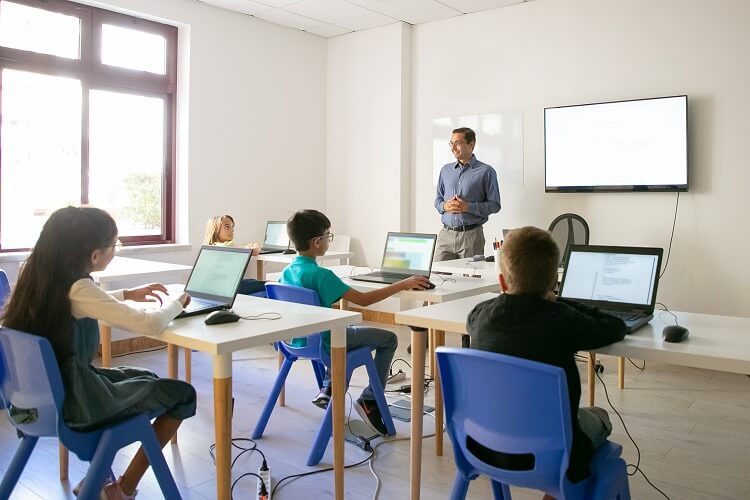The ability of the teacher to connect effectively with students, guardians, and colleagues is critical to teacher and student success. Teachers must have strong communication skills in order to assist their pupils in achieving academic success. Teachers must also have strong communication skills in order to advance in their careers. Teachers who lack effective communication skills stymie both the learning process and their personal career advancement. Read on to learn why are good communication skills important for teachers.
What are Communication Skills in Teaching?
Listening, speaking, reading, and writing is all examples of communication skills. A teacher must be highly proficient in all of these areas in order to teach effectively. Teachers who communicate well always make things easier and more understandable.
Why are Good Communication Skills Important for Teachers?
Here is why these skills are important for teachers:
Recruitment
Teachers with strong communication skills can establish their suitability for the position throughout the interview process. A candidate who is unable to convey her ideas adequately or relate her professional activities and experiences may struggle the first test. Teachers looking for work in school districts and other academic facilities must be able to communicate successfully throughout the recruiting process.
Parental Support
Teachers’ ability to communicate effectively is especially crucial in their interactions with parents. Teachers who want their students to succeed frequently seek the assistance of parents in instilling healthy study habits at home. When teachers are unable to communicate successfully with parents, they are unable to express a student’s needs in a manner that parents comprehend. Furthermore, if a parent notices the instructor’s incapacity to communicate properly, the parent may question if the teacher competently leads the class.
Career
Teachers who lack communication skills have fewer job prospects. Good communication skills are required for almost all disciplines. Some academic topics, however, may rely more on the instructor’s ability to communicate than others. A teacher, for instance, whose communication skills could use improvement is unlikely to be the best instructor for a public-speaking course.
Also Read: Is Emaester Really Good? Is Online Teaching a Potential Income Source?
How Do You Teach Effective Communication Skills to Kids?
Encourage Conversation
As a parent, you should encourage your child to initiate or participate in discussions as much as possible. We know that as toddlers grow and develop, they learn how to socialize by exercising their growing conversational abilities and observing what works for them in various contexts.
Begin with simple chats, such as those you may have while preparing meals together or while driving together. If you’re in the vehicle together, you can talk about where you’re going, the objective, and how your youngster is feeling. When you’re in the kitchen with someone, you can start a discussion by discussing the dish and the stages involved.
Pay Attention to What Your Youngster Has to Say
Listening is another important skill for children to master at a young age. Practicing good listening skills for your child is an excellent method to teach them the value of strong listening skills. It begins with you as a parent setting a good example for your child. When toddlers replicate your acts and repeat what you say, it demonstrates that repetition promotes the behaviour we want our kids to learn.
Make Conversations Fun
Incorporating fun into interactions is another suggestion for teaching youngsters basic communication abilities. It can be difficult to come up with engaging ideas on some days. You can begin by telling a hilarious story or describing an incident you experienced during the day. Then, encourage your child to share their own amusing anecdotes or discuss school events.
Conclusion
Effective communication is a critical life skill, and we must assist our children in developing these skills from an early age. The ability of a youngster to communicate has an impact on the learning process and the meaningful sharing of knowledge.
A youngster who can clearly explain his or her thoughts, feelings, and ideas in a classroom context is more likely to succeed academically than a student who cannot communicate effectively.
Children with great communication abilities are also much more likely to form healthy relationships with others because they have more opportunities to socialize with friends and are better able to communicate and convey their emotions.
Learn how to teach communication skills to kids with our program.
Also Read: How to Become an IELTS Trainer and Earn up to 30K a Month





